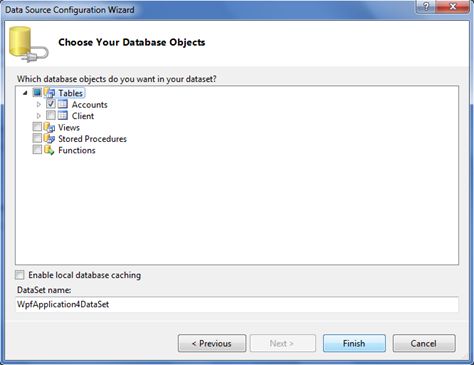Crystal Reports For .Net Framework 2.0 X64 Redistributable Package (64 Bit)
Crystal Reports for.NET Framework 2.0. I just formatted my machine with Windows 7 64-bit then I. I have windows 7 64 bits and I have a problem with Framework.
I need a runtime for SAP Crystal Reports for .Net 4.0 (64-bit). I have been searching from the web but not getting any success. Can I get the URL from where can i download this
closed as too localized by KevMar 6 '13 at 11:24
This question is unlikely to help any future visitors; it is only relevant to a small geographic area, a specific moment in time, or an extraordinarily narrow situation that is not generally applicable to the worldwide audience of the internet. For help making this question more broadly applicable, visit the help center. If this question can be reworded to fit the rules in the help center, please edit the question.
2 Answers
SAP is notoriously bad at making these downloads available... or in an easily accessible location so hopefully this link still works by the time you read this answer.
< original link no longer active >
http://scn.sap.com/docs/DOC-7824Updated Link 2/6/13:
https://wiki.scn.sap.com/wiki/display/BOBJ/Crystal+Reports%2C+Developer+for+Visual+Studio+Downloads - 'Updated 10/31/2017'
http://www.crystalreports.com/crvs/confirm/ - 'Updated 10/31/2017'
I have found a variety of runtimes including Visual Studio(VS) versions are available athttp://scn.sap.com/docs/DOC-7824
Not the answer you're looking for? Browse other questions tagged .net-4.0crystal-reports or ask your own question.
I'm currently using VS 2012 on a 64-bit PC, using Crystal Reports for VS 2012.
After installing Crystal Reports for VS 2012, I noticed there are 2 main folders:
- CommonSAP BusinessObjects Enterprise XI 4.0win64_x64
- CommonSAP BusinessObjects Enterprise XI 4.0win32_x86
The app that I'm going to deploy can be deployed on both 32-bit and 64-bit PCs, so which Crystal Reports DLLs should I reference? x86 or x64?
Or do I need to have 2 separate solutions, one with the x86 dlls referenced, and the other with x64?
Update:
Crystal Reports For .net Framework 2.0 X64 Redistributable Package (64 Bit)
What I did was to reference the x86 dlls when developing, and install the x86 redistributable version of crystal reports on all my deployment machines, regardless of its architecture. Hope that helps some of you guys out there
1 Answer
I know this isn't technically an answer to your question, but since it still remains unanswered even after having set a bounty, I thought I might suggest it anyway…

You might re-consider whether you really need a 64-bit version of your application. Most line-of-business applications (which I can assume is what you're building, since you're generating reports from it) do not really benefit from being 64-bit.
You can build and distribute only a 32-bit version (x86) and it will still run on all machines, regardless of whether they are running a 32-bit or 64-bit version of Windows. This is because all 64-bit versions of Windows include a special subsystem (Windows-on-Windows, or WOW64) that runs 32-bit code. It's entirely seamless, and there are virtually no compatibility problems to speak of.
Lots of applications are deployed this way. Visual Studio itself is an excellent example: it's still 32-bit code, but runs fine even on 64-bit versions of Windows, thanks to WOW64.
So to do this, you just set your project to target x86 platforms, and reference 32-bit DLLs exclusively. Since you'll only be building a single binary, this would greatly simplify development and distribution efforts, not only in terms of figuring out which DLLs to reference, but also the amount of code you need to test and the distribution process itself.
If you write good code that follows standard idioms and recommended practices, adding 64-bit support later (if it ever does prove to be of some benefit for your case) would be a fairly trivial operation. The .NET Framework abstracts away platform-specific differences extremely well; that's how they can offer an 'Any CPU' targeting option.
Aside from that, if I am allowed to speculate (because I have no particular experience with Crystal Reports), I imagine that the public interface is identical for both the 32-bit and 64-bit DLLs.
In that case, you can just reference the 32-bit version for your development work, and then configure your build script to pick the correct version of the DLL depending on whether you're building a 32-bit or 64-bit binary.
Naturally, the installer would need to make the same choice, either during the install (if you're using a unified installer) or when you build the installer itself (if you have separate 32-bit and 64-bit installers).
Not the answer you're looking for? Browse other questions tagged .netdeploymentcrystal-reports64bit32bit-64bit or ask your own question.
Most Popular Posts
- Vijay Tv Lollu Sabha Videos Free Download For Mobile
- Download Suara Sirine Mobil Ambulan
- Library Of Mmana Antenna Files
- Bone Thugs N Harmony Strength And Loyalty Album Zip
- Dream Theater Chaos In Motion Dvd Full Torrent
- The Beatles Magical Mystery Tour Full Movie Torrent
- Pengertian Aplikasi Pengolah Angka Microsoft Excel
- Torrent Download The Office Season 8
- Tennessee Serial Killer 1902
- Hum Sath Sath Hain Full Movie Download Kickass
- Loadrunner 11 Torrent Download
- Broadway Lites Free Download